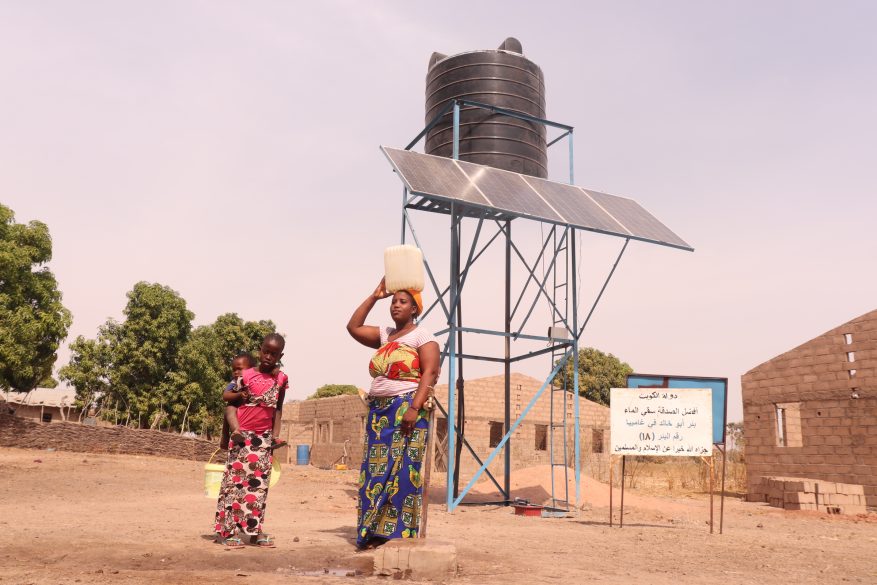Fatou Mjie at her local solar-powered water system in Touba Pakala
World Water Day takes place on March 22nd with the theme: ‘Water For Peace.’
Water is one of our most precious resources and is absolutely essential to life on earth, including the production of our food. However, there are still over 2.2 billion people who live without safe drinking water.
Tensions can arise over water between nations and groups as billions of people depend on water that crosses national borders. As populations continue to increase, we must unite and take action around protecting and conserving our most precious resource.
Access to water is vital for the small farmers we work with but this is becoming more challenging to achieve as climate change causes extended periods of drought and water scarcity. Roughly half of the world’s population is experiencing severe water scarcity for at least part of the year (IPCC, 2022).
In collaboration with our sister organisation, United Purpose we have provided hundreds of thousands of people with access to a safe, clean supply of water.
With the help of regional partners, we recently identified communities in The Gambia whose water sources were in urgent need of repair. Self Help Africa repaired the water sources but also supported the establishment of community water committees. Members received training in minor maintenance, and established a small contributions-based saving scheme that can fund any needed repairs.
Fatou Mjie, a rice farmer from Touba Pakala village, in The Gambia’s Central River Region, is one resident who has benefitted from her local solar-powered water system being repaired. “I walk to this community tap eight times a day to fetch water because I cook, wash dishes and wash clothes” explained Fatou. “It reduces the stress and hassle of collecting water outside our community. We also have time to relax and enjoy a little time off for ourselves.”
A network of local mechanics is now on hand to fix pumps, while a solar company has been retained to establish service contracts with rural communities and make regular maintenance visits.
Through our Water, Sanitation and Hygiene (WASH) strategy, we aim to help at least two million people improve their sustainable access to safe drinking water and basic sanitation services over the next five years.


